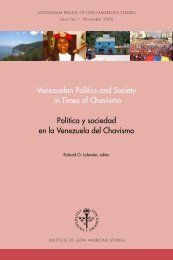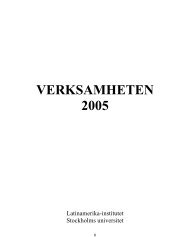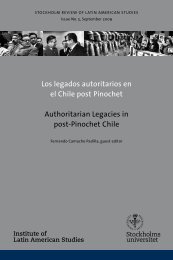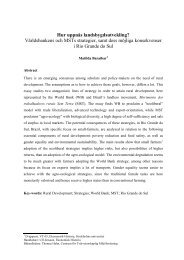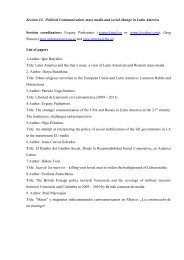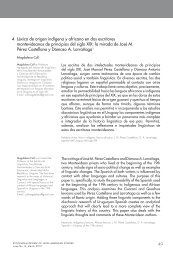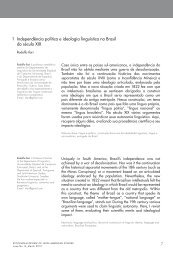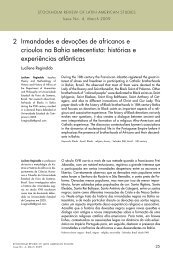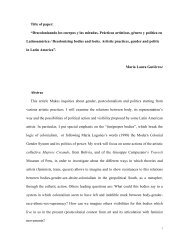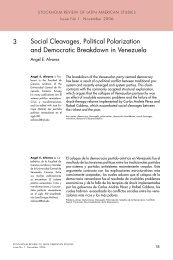Papers - Conference 2009 - Institute of Latin American Studies
Papers - Conference 2009 - Institute of Latin American Studies
Papers - Conference 2009 - Institute of Latin American Studies
You also want an ePaper? Increase the reach of your titles
YUMPU automatically turns print PDFs into web optimized ePapers that Google loves.
„clubs‟- deliberately, intuitively or inherently- would make use <strong>of</strong> European and North <strong>American</strong>cultural production, values and life style as status enhancing tool, within class conflictingsocieties, in order to maintain, or obtain, a superior social rank at one‟s eyes.Secondly, we will discuss what the media role in this process is; how paid media connects thosewho can afford to the Western Society in a more direct way and keeps those who cannot pay forit in “the Third World”. For this task, as for the aforementioned one, theories would be appliedover Brazilian society – because <strong>of</strong> its postcolonial country characteristics, solid mediaproduction, among others. Moreover, we will discuss how a latecomer medium, Internet,somewhat can modify this scenario through the democratization <strong>of</strong> access to foreign signs.2. Brazilian Society - Today and YesterdayTo juxtapose Brazilian society and Globalization process is, firstly, necessary to understand howsome values inherent to the Brazilian culture were created. In this context, white, foreign,European or, simply, Western people (in the modern concept <strong>of</strong> word) always had a ratherprivileged position – in practical and/or subjective ways- in <strong>Latin</strong> <strong>American</strong> countries. It is rathersymbolical, if not prophetical, to remember that Europeans that first stepped over <strong>American</strong> soilwere considered by some local tribes as “Gods” (Bueno, 1998) that have brought from heavennew gadgets, values, believes and ways <strong>of</strong> life. Since that period, European supremacy haschanged its bearing and coverings but never left its preeminence. From farm lords during theslavery times, where to be European meant to be a free man, to the earlier European immigrantsthat introduced a new salaried class outside cities, Europe has a unique position within Brazilianpeople subconscious.One would argue that such scenario could not be different once Brazilian social values were builtup over European parameters and thus, even after its colonial period, Brazil still seeing in European example to be sought. Once more a plausible explanation for such picture lies upon thecountry history as a „colonized‟ nation as:“Imperialism did not maintain its rule merely through suppression, but through theexport and institutionalization <strong>of</strong> European ways <strong>of</strong> life, organizational structures, valuesand interpersonal relations, language and cultural products that <strong>of</strong>ten remained andcontinued to have impact even once the imperialists themselves had gone home”.(Sreberny-Mohammadi. 1997: 51).5







